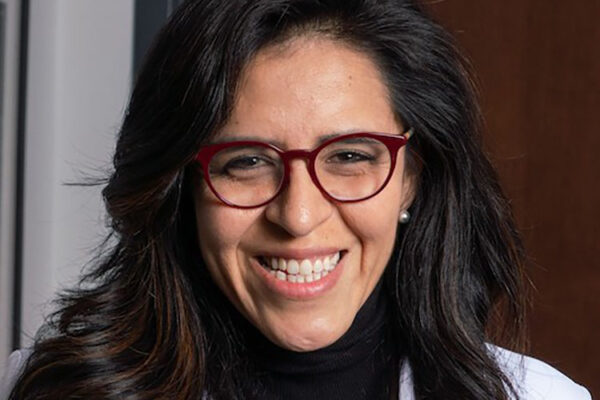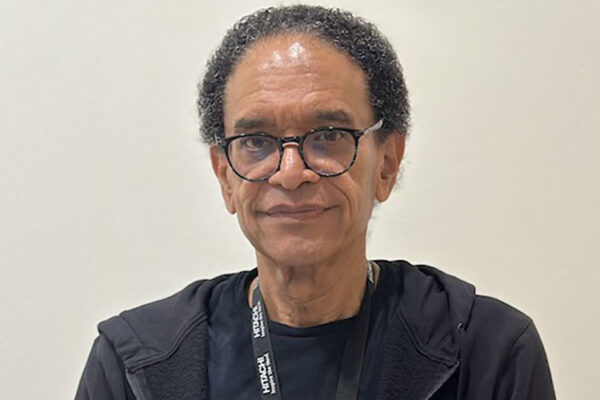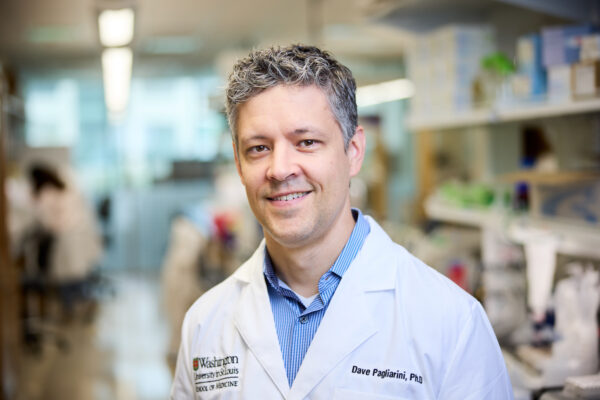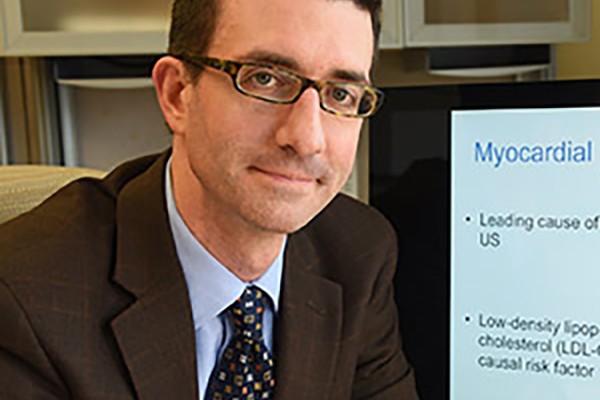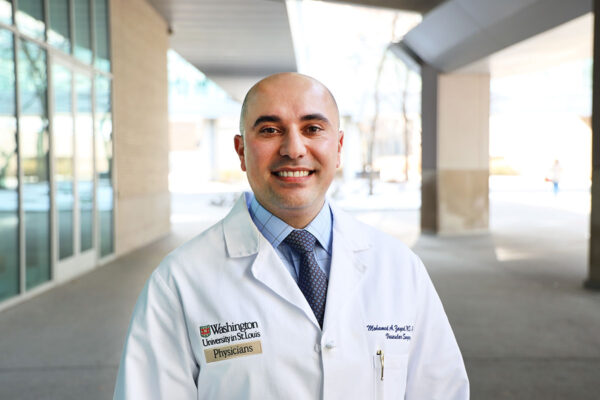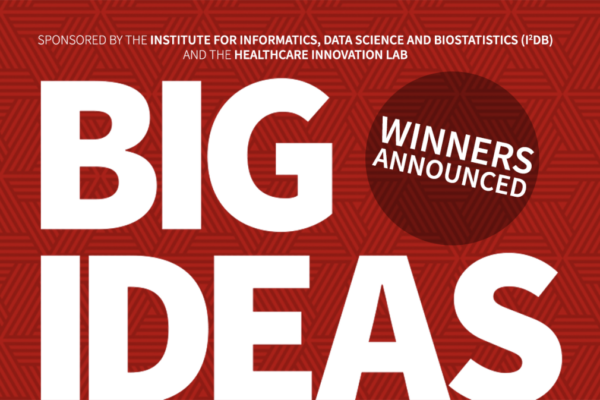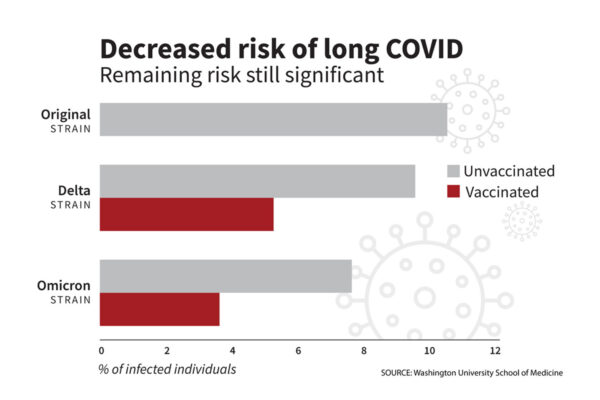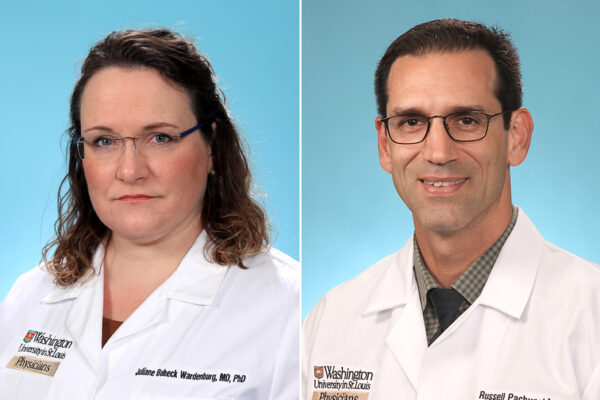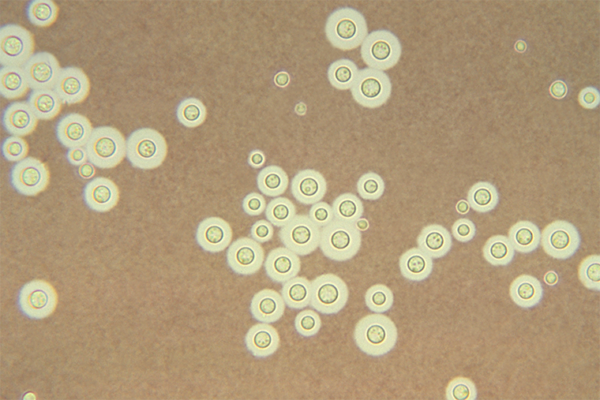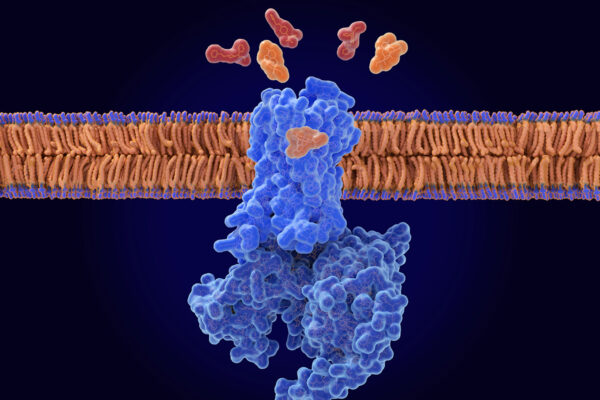Gomez-Lopez receives award to study pregnancy complications
Nardhy Gomez-Lopez, a professor of obstetrics and gynecology at Washington University School of Medicine in St. Louis, has received a four-year $500,000 award from the Burroughs Wellcome Fund to further research into the immunobiology of the maternal-fetal interface and identify biomarkers to predict preterm labor and birth.
Rosa-Molinar named director of cellular imaging center
Eduardo Rosa-Molinar has been named the new scientific director of the Washington University Center for Cellular Imaging and has joined the faculty of the Department of Cell Biology & Physiology and the Department of Neuroscience at the School of Medicine.
Pagliarini named HHMI Investigator
David Pagliarini, at Washington University School of Medicine in St. Louis, has been named a Howard Hughes Medical Institute Investigator. He will receive approximately $11 million in funding over seven years in support of research on mitochondria.
Stitziel honored by American Heart Association
Nathan O. Stitziel, MD, PhD, a professor of medicine and of genetics at Washington University School of Medicine in St. Louis, has received the American Heart Association’s Mid-Career Award in Genomic and Precision Medicine.
Zayed to lead new Division of Surgical Sciences
Mohamed A. Zayed, MD, PhD, a vascular surgeon known for his pioneering research in vascular diseases, has been appointed director of the newly established Division of Surgical Sciences in the Department of Surgery at Washington University School of Medicine in St. Louis.
Big Idea winners announced
The winners of the Big Ideas Competition, which supports novel projects in informatics and health-care delivery, have been announced. The competition is jointly sponsored by the Institute for Informatics, Data Science and Biostatistics at Washington University School of Medicine in St. Louis and the BJC Healthcare Innovation Lab.
Risk of long COVID declined over course of pandemic
The risk of developing long COVID has decreased significantly over the course of the COVID-19 pandemic, primarily due to vaccination, according to a new analysis led by School of Medicine researchers.
Physician-scientists receive Scholar-Innovator award
Juliane Bubeck Wardenburg, MD, PhD, and Russell Pachynski, MD, both of Washington University School of Medicine in St. Louis, have been honored with the 2024 Scholar-Innovator Award from the Harrington Discovery Institute at University Hospitals in Cleveland.
Newly ID’d enzyme helps pathogenic fungus build protective cell wall
Researchers at the School of Medicine have identified a novel enzyme involved in building the cell wall of Cryptococcus neoformans, a fungus that causes lung infections and potentially deadly cases of meningitis, primarily in people with AIDS.
Experimental drug supercharges medicine that reverses opioid overdose
Researchers at Washington University School of Medicine in St. Louis, with collaborators at the University of Florida and Stanford University, identified a compound that, in mice, makes naloxone much more effective at counteracting a drug overdose.
Older Stories
